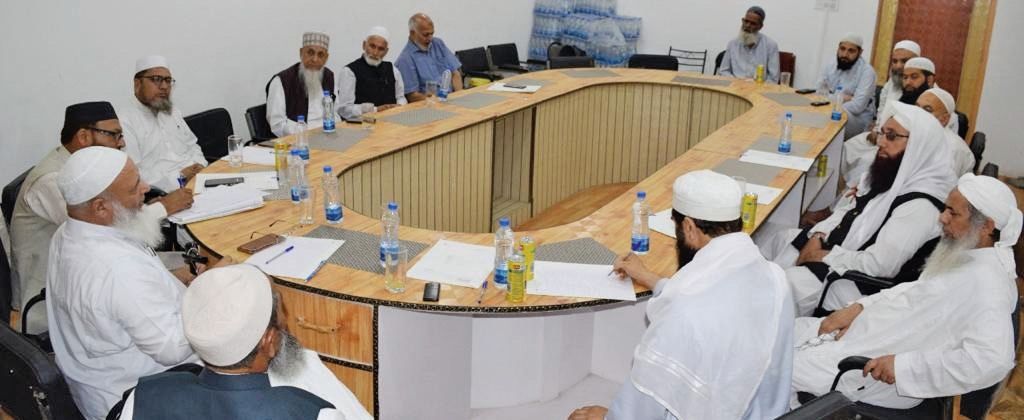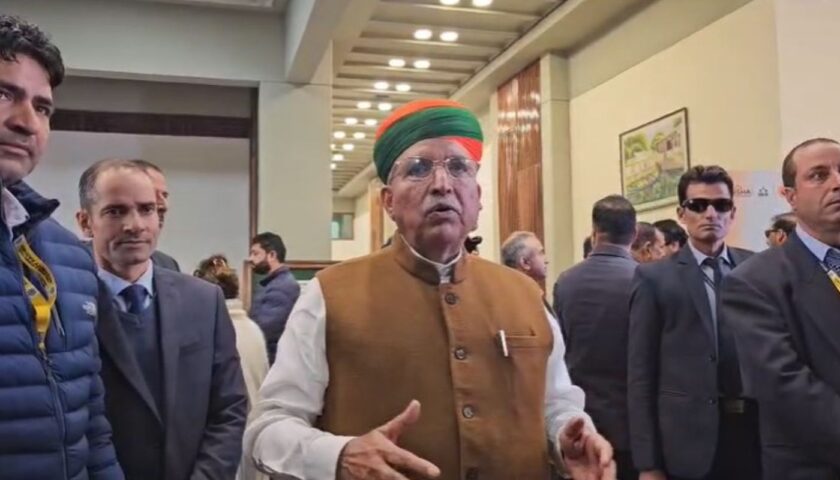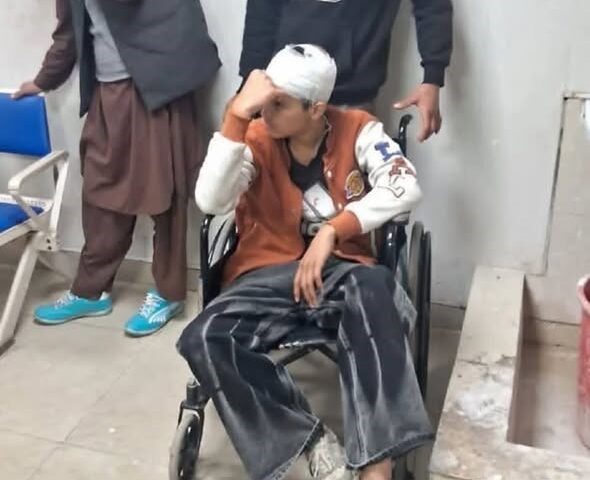Restrictions on Religious Gathering Raise Concerns Over Minority Rights
Srinagar, 09 April 2025: Controversy Continues Over Waqf Law
Authorities in Jammu and Kashmir reportedly prevented the Mutahida Majlis-e-Ulema (MMU), a prominent religious body, from holding a scheduled meeting to discuss the implications of the contentious Waqf (Amendment) Act. The meeting, intended to take place at Mirwaiz Umar Farooq’s residence in Srinagar, was aimed at addressing community grievances regarding the Act and devising a collective response.
The move to restrict the MMU gathering has drawn sharp criticism from religious leaders and community members, with many questioning the government’s intent and its handling of minority concerns.
What Happened?
All lanes leading to Mirwaiz Umar Farooq’s residence in Srinagar were reportedly sealed, preventing delegates from across Jammu and Kashmir—including Ladakh, Kargil, and Jammu—from attending the meeting. Mirwaiz, who is also the Hurriyat Conference chairman and chief cleric of Kashmir, expressed disappointment at the government’s actions.
“This is the strangest thing I’ve witnessed. How can authorities bar even peaceful discussions on such an important issue for the Muslim community? This act is highly condemnable,” Mirwaiz stated.
Purpose of the MMU Meeting
The Mutahida Majlis-e-Ulema had planned to deliberate on the implications of the Waqf Act and formulate a joint resolution to address its concerns. The resolution was intended to be read out in mosques and religious congregations across the Union Territory on Friday, marking collective opposition to the Act.
Mirwaiz also pledged solidarity with the All India Muslim Personal Law Board, stating that the MMU supports any course of action deemed necessary to address challenges posed by the Waqf Act. “We stand united with the larger Muslim community in India and will not let this issue go unanswered,” Mirwaiz remarked.
The Waqf Act Debate
The Waqf (Amendment) Act, passed by Parliament, has been at the center of controversy for its alleged infringement on religious and minority rights. Critics claim that the Act undermines the autonomy of Waqf properties, enabling state interference in their management.
The Act has faced widespread criticism from religious and political leaders, with petitions challenging its constitutionality now pending before the Supreme Court. In Jammu and Kashmir, the Act has sparked protests, both in the streets and in the Legislative Assembly, where attempts to discuss the law were blocked by the Speaker.
Reaction to Government Restrictions
Religious leaders and political activists have condemned the restrictions imposed on the MMU meeting, accusing the government of suppressing dissent. “This is not just an attack on the Waqf issue; it’s an attack on our democratic and religious rights,” said a senior cleric.
Political parties have also weighed in, with the PDP accusing the government of using heavy-handed tactics to silence minority voices. PDP leader Mehbooba Mufti described the move as “profoundly disappointing” and called for immediate accountability.
Public Concerns
The incident has sparked widespread concern among Kashmir’s Muslim community, which views the Waqf Act and subsequent restrictions on dissent as part of a larger strategy to erode their rights and identity. “First, they take over our properties, and now they don’t even let us talk about it,” said a Srinagar resident.
Social media platforms have been abuzz with criticism, with hashtags like #SaveWaqf and #MinorityRights trending among Kashmiri users.
Looking Ahead
As opposition to the Waqf Act intensifies, the government’s actions are likely to face continued scrutiny from religious leaders, political parties, and civil society. The MMU has vowed to reconvene and find alternative ways to address the community’s concerns, ensuring that their voices are not silenced.




